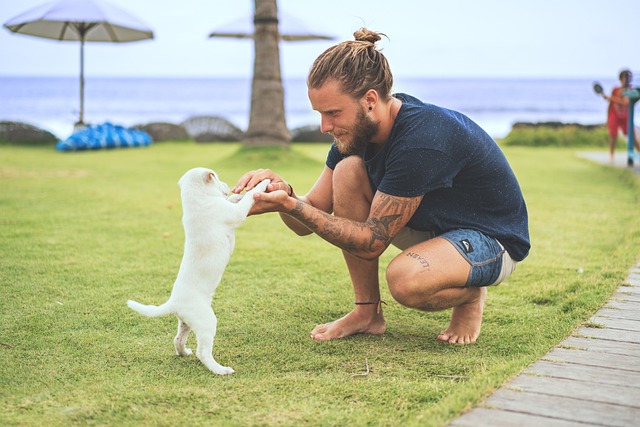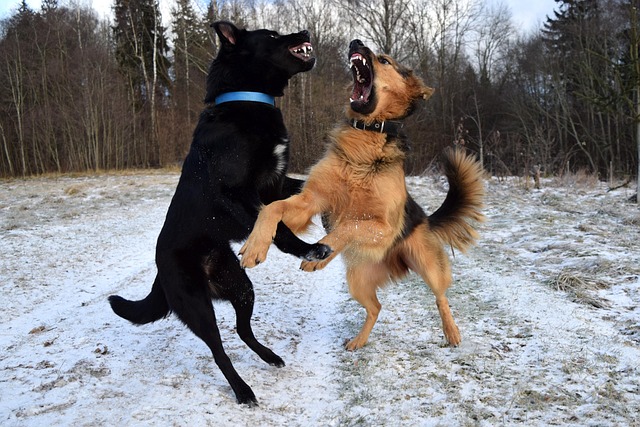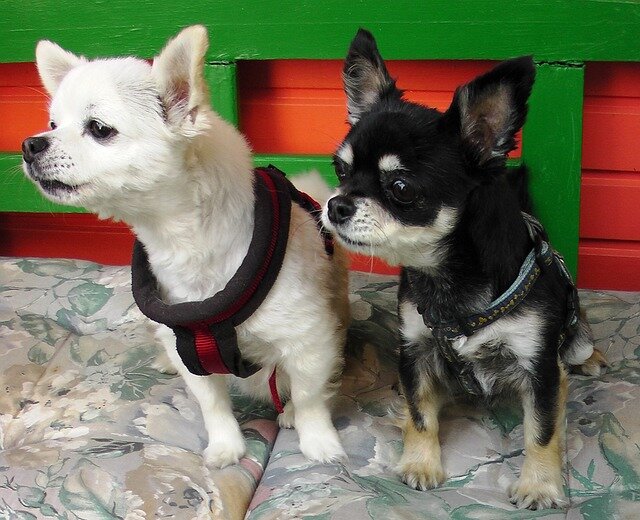Why Does My Dog Misbehave For Me But Not My Husband?
These questions of the husband and wife complaining about their dog being given attention or responding more to one party over the other are getting rampant in different pet forums and on social media. If you could remember when we answered the question, “Why is my dog calm around me but not my husband?” We dropped some solid reasons for this behavior and tips on how to stop it. Today’s topic is more like a continuation, and this time the wife is asking, “Why does my dog misbehave for me but not my husband?“
Dogs are known to be loyal, loving, and obedient pets, but sometimes they can display misbehavior towards their owners, causing frustration and confusion. If you’re a dog owner and you notice that your dog is misbehaving for you but not for your husband, you’re not alone. Many dog owners have experienced this phenomenon and wonder what could be causing it. In this article, we’ll explore some of the reasons why your dog may be misbehaving for you but not your husband.
Why does my dog misbehave for me but not my husband?
Take your time and read this piece for some possible reasons why your dog may misbehave for you but not your husband.
Different leadership styles
One possible explanation for why your dog misbehaves for you but not your husband is a difference in leadership styles. Dogs are pack animals and are programmed to follow a leader. If you and your husband have different leadership styles, it could be causing confusion for your dog.
For example, if you are more relaxed and lenient with your dog, while your husband is stricter and more authoritative, your dog may be more inclined to listen to your husband. Dogs are very perceptive and can pick up on subtle differences in behavior and body language, which can affect their obedience and behavior.
Reinforcement and Training
Another reason why your dog may be misbehaving for you but not your husband could be due to differences in reinforcement and training. Dogs learn through reinforcement and repetition, and if your husband has been reinforcing good behavior in your dog more consistently than you have, your dog may be more likely to listen to him.
Additionally, if your husband has been more involved in training your dog, he may have established a stronger bond and relationship with your dog, making it easier for him to communicate his expectations and commands.
Past Experiences
Dogs have memories and can associate past experiences with specific people or situations. If your dog has had negative experiences with you in the past, such as scolding or punishment, he may be more hesitant to obey you in the future.
On the other hand, if your husband has only had positive experiences with your dog, such as playing, rewarding, and praising, your dog may be more inclined to listen to him. So, it’s always essential to create positive experiences with your dog to build a strong bond and trust.
Health Issues
Sometimes, changes in behavior in dogs can be attributed to underlying health issues. If your dog is misbehaving for you but not your husband, it’s possible that he may be experiencing discomfort or pain when interacting with you.
Dogs can sense when their owners are feeling off, and they may respond by acting out or showing signs of stress or anxiety. If you suspect that your dog’s behavior is due to a health issue, it’s crucial to seek advice from your veterinarian to rule out any underlying medical conditions.
Gender Preferences
It’s not uncommon for dogs to show gender preferences, especially if they have had more positive experiences with one gender than the other. If your dog has had more interactions with your husband or other men than with you or other women, he may be more comfortable with and receptive to their commands and cues.
Additionally, dogs can pick up on subtle differences in voice pitch, tone, and body language between genders, which can affect their behavior and obedience.
Household Dynamics
The dynamics of your household can also play a role in your dog’s behavior. If your husband is the primary caregiver or spends more time with your dog than you do, your dog may be more responsive to him.
Additionally, if there are conflicts or tension between you and your dog, it can affect his behavior and obedience towards you.
Training Techniques
Different training techniques can yield different results in dog behavior. If you and your husband have been using different training techniques, it could be affecting your dog’s behavior.
For example, if you use punishment-based training, your dog may be more fearful and hesitant to obey you. On the other hand, if your husband uses positive reinforcement-based training, your dog may be more motivated to listen to him.
Read also>> Why is my dog aggressive towards other dogs
What Can You Do To Prevent Your Dog From Misbehaving For You But Not Your Husband?
So, what can you do to prevent your dog from misbehaving for you but not your husband? Here are some tips:
Communicate consistently
Make sure that all family members communicate with the dog in the same way, using the same commands, body language, and tone of voice. This will help the dog understand what is expected of them and reduce confusion.
Spend Quality Time with Your Dog
Spending quality time with your dog can help strengthen your emotional connection and build trust. Engage in activities that your dog enjoys, such as playing fetch, going for walks, or cuddling on the couch.
Use Positive Reinforcement
Positive reinforcement-based training, such as rewarding good behavior with treats or praise, can motivate your dog to obey you. Avoid using punishment-based training, as it can make your dog fearful and less likely to obey you.
Be consistent with your training.
Make sure that all family members are consistent in their training methods and expectations. This will help the dog learn appropriate behaviors and reduce confusion.
Address your dog’s fear or anxiety
If your dog is fearful or anxious around a particular family member, it’s important to address this issue. This may involve working with a professional dog trainer or behaviorist to help prevent your dog from misbehaving for you but not your husband. This will also help your dog feel more comfortable and confident around you.
Work with a Professional
If you’re struggling to train your dog or address behavioral issues, consider working with a professional dog trainer or behaviorist. They can provide personalized guidance and support to help you and your dog succeed.
Why is my dog calm around me but not my husband?
There could be various reasons why your dog is calm around you but not your husband, including differences in tone of voice, body language, past experiences, or the amount of time spent with the dog. It’s important to observe your dog’s behavior and body language around your husband to better understand the reason behind their behavior and address any potential issues. Seeking the advice of a professional dog trainer or behaviorist can also be helpful in identifying and addressing the underlying issue.
For more detail on this, check out>> Why is my Dog Calm Around Me But Not My Husband?
How can I get my dog to like me more than my husband?
It’s not a healthy or productive approach to try to make your dog like you more than your husband. Dogs are social animals and can form strong bonds with multiple people. Instead of trying to compete with your husband, focus on building a positive relationship with your dog through regular training, playtime, and positive reinforcement. Spend quality time with your dog, offer treats and rewards, and engage in activities that your dog enjoys.
Additionally, encourage your husband to participate in these activities as well and create positive associations between your dog and your husband. With patience and consistency, you can strengthen the bond between you and your dog without having to compete with your spouse.
Read also>> How to stop your dog from pooping in the car
Conclusion
If you’re experiencing misbehavior from your dog, it’s essential to identify the underlying cause to address it effectively. A difference in leadership styles, reinforcement and training methods, past experiences, health issues, and gender preferences are all possible explanations for why your dog may be misbehaving for you but not your husband.
It’s important to remember that every dog is unique and may require different approaches and techniques to address their behavior. I hope you have now gotten the answer to the question, “Why does my dog misbehave for me but not my husband?” Please share the post.







